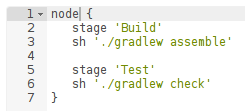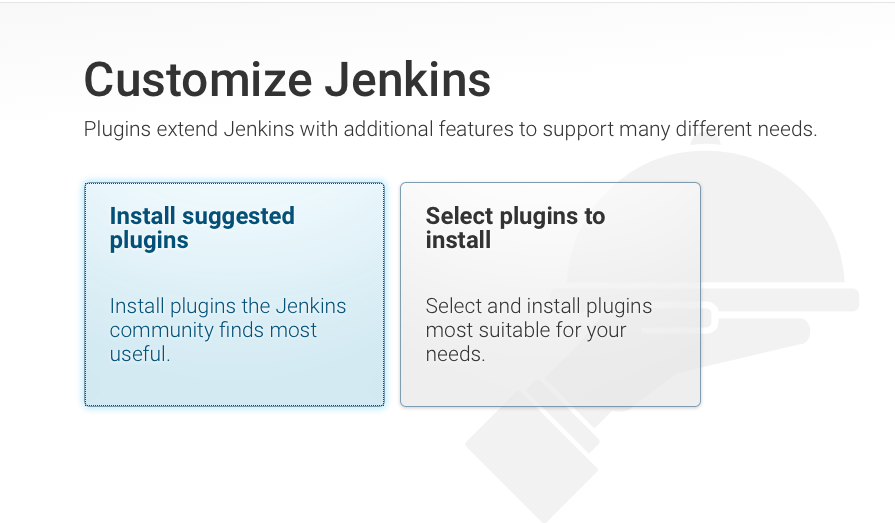Jenkins 2.0 alphas released
After first announcing the Jenkins 2.0 effort last fall, we are pleased to announce the availability of the first Jenkins 2.0 alpha builds. For months we have had builds available from the jenkins_2.0 branch of development, but the "alpha" builds mark Jenkins 2.0 being officially made available for testing and feedback.
Jenkins 2.0 Highlights
Pipeline as Code
The new Pipeline functionality in Jenkins allows you to define configuration as code, which can be checked in and version controlled along with the rest of your project’s source code.

Defining your pipeline’s configuration as code makes it easier to create a simple "build and test" pipeline, while enabling more advanced and complex pipelines through the expressive Groovy-based domain specific language.
Out of the box experience
For new users, Jenkins 2.0 starts off with set of recommended plugins, seen in the image above, to help get you started with the right set of tools to get up and running with Jenkins quickly.
For the more adventurous users, the Jenkins 2.0 initial setup process also allows you to pick and choose exactly the plugins you want to meet your specific needs.
Tell us what you think!
We’re very interested in your feedback on what you think of the Jenkins 2.0 preview releases.
If you use Twitter, you can leave us some feedback on Twitter
Our jenkinsci-users mailing list is also available for feedback in this thread
And of course, since this is a preview release, if you find any issues please report them to our issue tracker to the JENKINS project.
